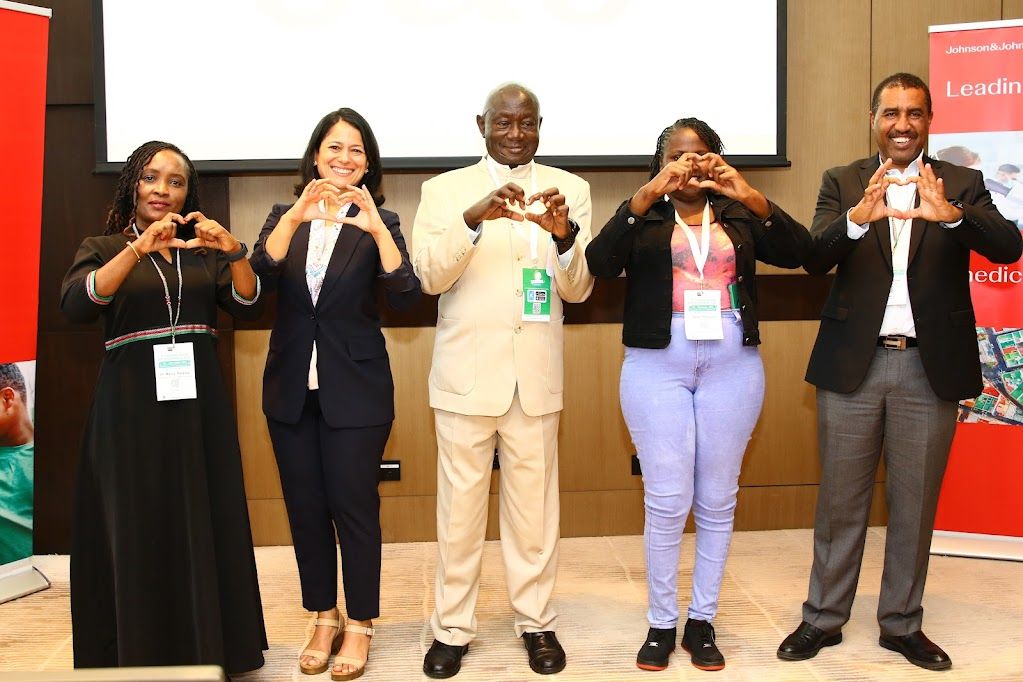

Left to right: Dr Mercy Karanja, Head of the Division of Mental Health at the Ministry of Health, Sanae Mousannif, General Manager for Sub-Saharan Africa, Johnson & Johnson Innovative Medicine, Dr Fred Owiti, Psychiatrist, Daisy Peresian, Person with Lived experience, Anthony Gitau, the Director of Program Delivery & Impact, Global Health Equity at Johnson & Johnson/HANDOUT
A new national initiative aimed at expanding access to mental health services, reducing stigma, and empowering communities has been launched in Kenya.
The Kenya Mental Health Project was unveiled during the 2nd National Mental Health Conference, in a collaboration between Johnson & Johnson Middle East FZ-LLC (Kenya Branch) and the Ministry of Health.
“This initiative represents a significant step toward a more resilient and inclusive mental health system in Kenya.”
Kenya continues to face a growing mental health burden, with limited access to services and high levels of stigma preventing many from seeking support.
According to the Ministry, mental health conditions affect at least 15 per cent of working Kenyans, yet over three-quarters are unable to access treatment.
The country has fewer than 500 specialised mental health workers nationwide.
The new project seeks to bridge these gaps through professional training, community engagement, and public awareness campaigns designed to create a more inclusive and supportive mental health ecosystem.
General Manager for Sub-Saharan Africa at Johnson & Johnson Innovative Medicine, Sanae Mousannif, said the initiative is centered on empowering local health systems and frontline workers.
“At the heart of this initiative are the people it seeks to serve,” said Mousannif.
“That’s why we’re working hand in hand with healthcare providers to equip them with the skills and resources needed to support patients, caregivers, and communities throughout their mental health journey.”
He added that the company’s approach prioritises equitable access.
“We believe that equitable access to mental health services is essential. By collaborating with government and community partners, we can build a model that truly empowers mental health care teams and ensures that support is available to patients in need.”
The project will be rolled out across various regions in Kenya, combining community-driven programs, training for health workers, and nationwide awareness campaigns.
Through joint efforts between government agencies, health institutions, and local communities, the initiative aims to reduce stigma, improve access to care, and encourage early intervention — ultimately building a mental health system that supports all Kenyans
As part of this effort, the project aims to train 5,000 Community Health Assistants and 100,000 Community Health Promoters nationwide on a comprehensive mental health module by 2026.
Building on the Ministry of Health’s Mental Health Policy (2015–2030) and Suicide Prevention Strategy (2021–2026), the initiative focuses on integrating mental health into primary care, equipping healthcare professionals with training and resources, and fostering stigma-free conversations within communities.














